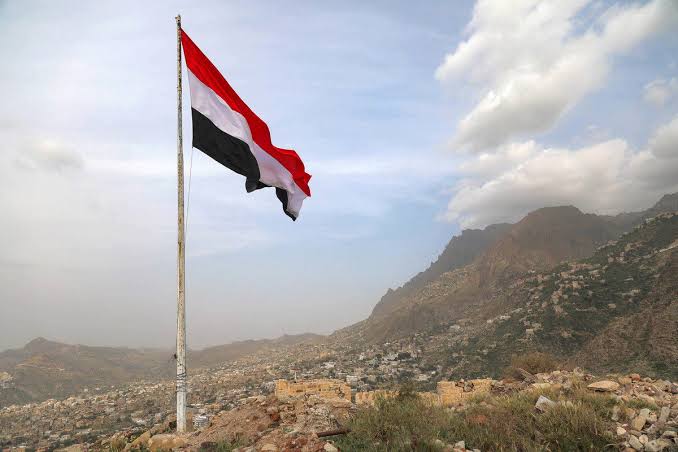
Yemen: April 27, a Historic Day to Build Upon
Yemen requires fresh approaches to chart an unconventional national vision. The initial step is to come together, setting aside personal agendas, grievances, or power struggles. The nation's welfare transcends individual interests, regardless of stature, as it embodies a collective trust held deep within every citizen.
Certain days stand as eternal, luminous milestones in the annals of peoples and nations. April 27 marked such a momentous occasion in Yemen’s history. It heralded the inception of the country’s first democratic initiative since the establishment of the Republic of Yemen in 1990, marked by the inaugural competitive parliamentary elections among political factions. These elections unfolded amidst a backdrop of relative equilibrium, robust party rivalries, and transparent procedures, setting the stage for a recurring democratic process every four years.
Subsequently, presidential elections were conducted through popular suffrage following constitutional amendments, transitioning from previous appointments via the House of Representatives. This shift represented a significant leap forward, broadening the scope of civic engagement through simultaneous local elections. At this juncture, the populace exercised their right to choose their representatives at both the national and local levels, signaling a pivotal moment in Yemeni governance.
After all this time has passed, and in light of the length of the transitional period, I will not go into the details of what has happened since 2011 and how it harmed the democratic transition, and its impact. The war and destruction of Yemen in various political, economic, social, and developmental fields.
Certainly. In this context, it’s crucial to engage in rational and objective analysis, focusing on developing a forward-thinking perspective rooted in reality. Rather than recounting well-known events and disasters, it’s imperative to offer insightful opinions and general trends, akin to directional road signs guiding us toward the future. Writers and politicians bear the responsibility of shaping trends, leaving the practical task of paving roads to the appropriate authorities.
Firstly: Whatever setback happened to the nation, everyone is responsible for it, whether those in power or the opposition. For a simple reason, if there had been an agreement on trends and tendencies, what happened would not have happened and the balance of the nation would not have been imbalanced and it would have headed towards chaos and the destruction of everything!!
Second: It must be recognized that the previous democratic experience was an emerging experience and an important step on the right path. We do not claim that it was exemplary or complete, as it was marred by shortcomings and faced pathological symptoms for various reasons. Today we must look at it on the basis that it was the starting point of a train that deviated from its track due to the rough terrain. The terrain of human geography in a country like Yemen has more challenges than opportunities to overcome it.
Third: Now, as the French proverb says, we must not cry over spilled milk, but rather we must learn to make new milk that we do not want to spill again. This entails the restoration of the state, reconstruction of institutions, and addressing the repercussions of disruption, such as delayed salary payments and deteriorating services, with a primary emphasis on alleviating human suffering.
Preserving the unity of the homeland stands as a paramount concern amidst looming threats of fragmentation. It’s essential to prioritize this before indulging in the luxuries of democracy and its mechanisms. These mechanisms, once central to democratic ideals, were undermined following the American invasion of Iraq. The invasion, lacking substantiated claims, was initially justified under allegations of chemical weapons, later pivoting to the pretext of establishing democratic governance.
Preserving the unity of the homeland stands as a paramount concern amidst looming threats of fragmentation. It’s essential to prioritize this before indulging in the luxuries of democracy and its mechanisms.
During what was termed the Arab Spring, upheavals led to the dismantling of state structures and the rise of dominant militias in Yemen, Libya, and Iraq. These occurrences prompted inquiries into the efficacy of democracy in addressing the challenges afflicting many Arab nations. It begs the question: Is democracy still an immediate necessity for them, or for developing countries at large?
The immediate focus lies in reconstructing the state through inclusive, participatory methods to alleviate the populace from poverty, hunger, and disease. This entails consensus-building around a constitution and transitional government that reflect the people’s aspirations with wisdom and patience, grounded in present realities. Rather than adhering strictly to democratic norms, the imperative is to think innovatively to safeguard the nation’s integrity, even if historical divisions persist.
Moreover, I recognize the pressing need to forge a unified front through constructive dialogue to rescue the nation. This involves crafting a national agenda that garners widespread support and selecting respected national figures to lead a dialogue aimed at ushering in a transitional period. Such a process should be empowered to enact transitional legislation and establish a government of national unity, contingent upon a comprehensive ceasefire and inclusive dialogue, under the auspices of the United Nations and key regional and international stakeholders.
Yemen requires fresh approaches to chart an unconventional national vision. The initial step is to come together, setting aside personal agendas, grievances, or power struggles. The nation’s welfare transcends individual interests, regardless of stature, as it embodies a collective trust held deep within every citizen.
_________________________________
Dr. Taha Hussein Al-Hamdani is a Sixteenth Council writer



